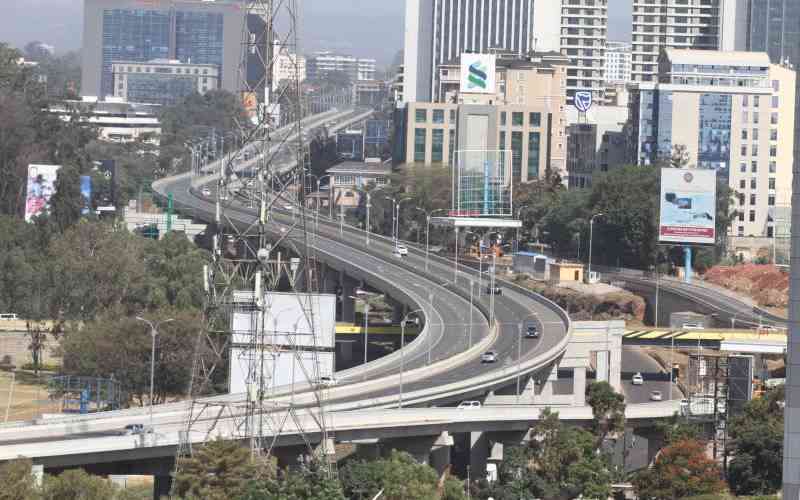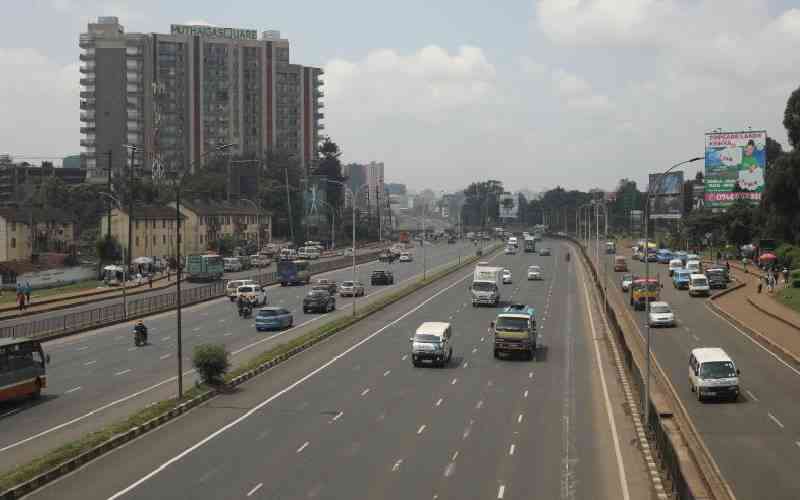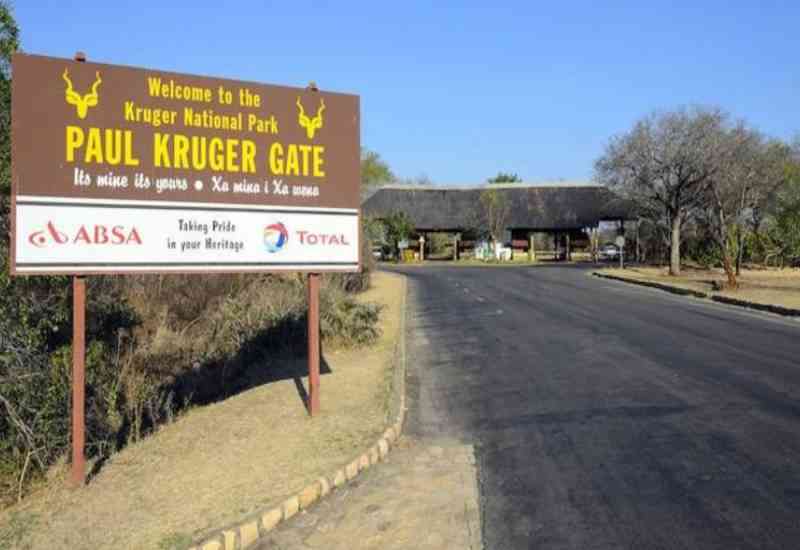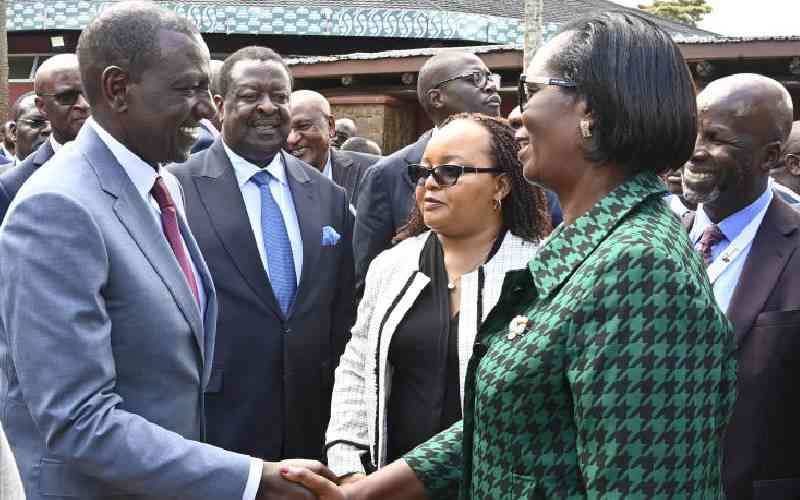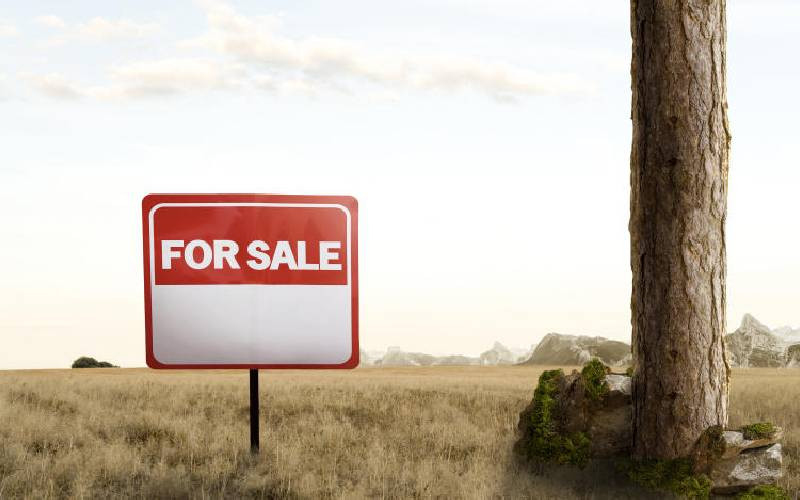
Why should an acre of land cost half a Sh500 million in Nairobi?
The lazy answer is the demand is higher than the supply. There is only a limited amount of strategically located land in Nairobi.
Further, anyone can buy land in Nairobi regardless of tribe or race.
The city is home to all and sundry compared with counties that have “owners” exemplified by “their excellences.”
This “homeliness” increases the demand further. We feel safer investing in Nairobi than in other places, and the returns are higher. In Nairobi, any land is valuable, even swamps and river valleys. That does not apply to land in the rural areas. Land prices in the city defy common sense and all the knowledge we have acquired on safeguarding sources of water and sustainability.
We forget something else; Nairobi is the centre of power from the national government, the UN, intellectual power and economic power.
This power interferes with the market too. Have you noted adverts for houses that claim they are in the “blue zone?”
Contrast the city with rural areas. A piece of land on sale in Shamakhokho is likely to be sold to a local.
The same applies to land in Ikohokoho, Mulutu, Ekalakala or Mkungi. The emotional component of land decreases land demand in rural areas.
Add curses and other traditional restrictions that interfere with market forces. Have you ever wondered why land has suddenly become available in Kiambu and how the “former Kiambu” like Kawangware is getting new owners? How about Tatu City?
On that later. In other parts of the world, the emotional part of land is muted. Land is seen as a factor of production or is owned by the government. The lack of other investment alternatives leaves land at the mercy of speculators.
It does not help that those entrusted with land are often accomplices in selling it. Think of all the public land that has “disappeared.”
In developed countries, unless you are a farmer, the land on which your house stands is enough!
Time also decreased the supply. Nairobi has been settled on for over 100 years, leaving less empty land.
Stay informed. Subscribe to our newsletter
Compare that with “newly settled” places like Kajiado or Nyandarua.
High population growth has created the demand for land. As the common saying goes, it’s easier to create a baby than land.
Unless there is a volcanic eruption, land is rarely created. But we could get land in exoplanets in my lifetime.
Closer observation seems to suggest land often defies the laws of supply. The owners release it in drips. For example, during general elections or economic upswing prices are too good. What happens when a huge chunk of land is put on sale?
Inheritance also releases land to the market. The next generation may value it less; they have seen it all their life. Unable to carry on the previous activity on the land, they sell it to either invest in alternative ventures or squander it. Why is so hard to stop selling land once someone starts?
Back to the topic of why empty land is so pricy. It’s not just because it might be the only empty land.
It gives the new owner choices. Think of that piece of land at the junction of Kenyatta Avenue and Uhuru Highway.
Once land is built up, converting it into alternative use is not easy. Why else did Hilton and Intercontinental hotels close?
Why not convert them into affordable housing? Think of schools that closed during Covid-19. Even demolishing such structures is expensive. Think of dismantling the concrete-lined underground parking?
A lack of choices keeps off buyers. It is no wonder old downtowns eventually become tourist attractions.
An empty piece of land can be put to many uses, including leaving it empty for speculation. The choices on the use of empty land drive its price up. More choices increase your chances of making money.
Add demand and prices go through the roof. Built-up land reduces your choices. Next time you are buying a piece of land, don’t tell the owner it has nothing!
You should pay less if it’s built up, which interferes with your choices. Choice is the fulcrum on which economics rotates. We seek money to give us choices on where to live, what to eat, what to drive, and even whom to marry.
The premium on empty land is the more reason we need a national land bank. Unfortunately, we hate empty land, including cemeteries. That is why our national projects like roads are so expensive, land is acquired from the open market, where the owners must be “coaxed” to release it through high prices. Curiously, the government comes in when the market fails. Has the market for land in Kenya failed?
Maybe it has not, and high prices are simply rationing the scarce land. The big question is whether life-giving land and water should be left purely to the market.
Would the government do better than the invisible hand of the market? Do you have an empty piece of land? What do you intend to do with it?
 The Standard Group Plc is a
multi-media organization with investments in media platforms spanning newspaper
print operations, television, radio broadcasting, digital and online services. The
Standard Group is recognized as a leading multi-media house in Kenya with a key
influence in matters of national and international interest.
The Standard Group Plc is a
multi-media organization with investments in media platforms spanning newspaper
print operations, television, radio broadcasting, digital and online services. The
Standard Group is recognized as a leading multi-media house in Kenya with a key
influence in matters of national and international interest.
 The Standard Group Plc is a
multi-media organization with investments in media platforms spanning newspaper
print operations, television, radio broadcasting, digital and online services. The
Standard Group is recognized as a leading multi-media house in Kenya with a key
influence in matters of national and international interest.
The Standard Group Plc is a
multi-media organization with investments in media platforms spanning newspaper
print operations, television, radio broadcasting, digital and online services. The
Standard Group is recognized as a leading multi-media house in Kenya with a key
influence in matters of national and international interest.



